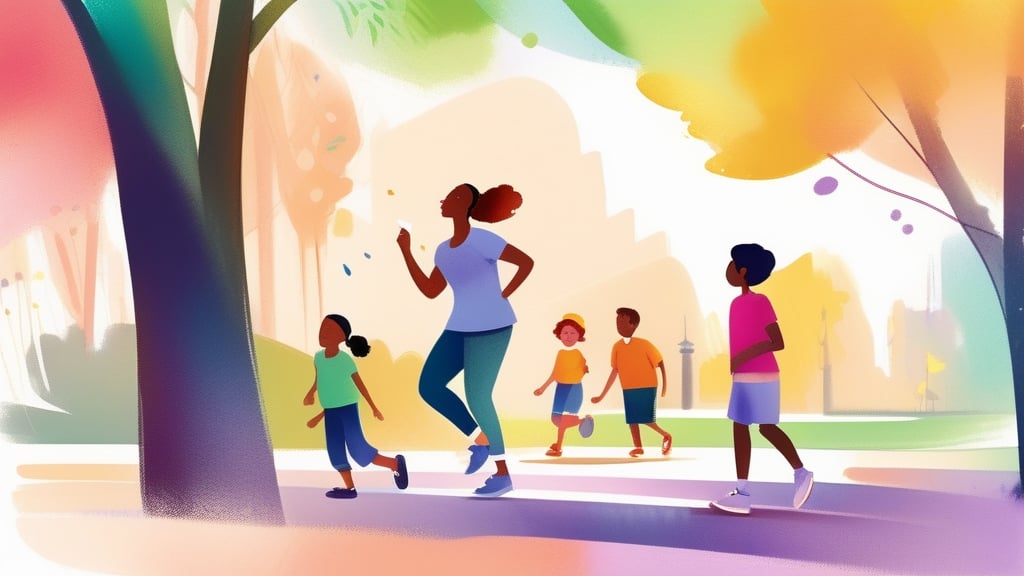Learn Arabic
| English | Arabic | |||
|---|---|---|---|---|
| Hello | صباح الخير | |||
| Good evening | مساء الخير | |||
| Goodbye | إلى اللقاء | |||
| See you later | أراك لاحقا | |||
| Yes | نعم | |||
| No | لا | |||
| Please! | من فضلك ! | |||
| Please! | من فضلك ! | |||
| Thanks | شكرًا لك | |||
| Thanks | شكرًا لك | |||
| Thanks a lot | شكرا جزيلا ! | |||
| Thank you for your help | شكرا على مساعدتك | |||
| Thank you for your help | شكرا على مساعدتك | |||
| Don't mention it | على الرحب والسعة | |||
| Ok | نعم | |||
| How much is it? | ما هو السعر من فضلكِ؟ | |||
| How much is it? | ما هو السعر من فضلكَ؟ | |||
| Sorry! | معذرة ! | |||
| I don't understand | لاأفهم | |||
| I get it | فهمت | |||
| I don't know | لا أعرف | |||
| Forbidden | ممنوع | |||
| Excuse me, where are the toilets? | أين الحمامات من فضلكِ؟ | |||
| Happy New Year! | عام سعيد ! | |||
| Happy birthday! | عيد ميلاد سعيد ! | |||
| Happy holiday! | أعياد سعيدة ! | |||
| Congratulations! | مبارك |
Embark on a Linguistic Adventure - Learn Arabic Today!
Welcome to our comprehensive conversation guide designed to help you learn Arabic efficiently.
Our practical approach focuses on teaching you essential words and phrases that can be used daily at home and will prove invaluable when traveling.
Reciting vocabulary out loud, such as numbers, is an effective exercise that can be practiced anytime, anywhere.
This will familiarize you with the unique sounds and rhythms of the language.
Experience the Richness of Arabic Culture
As you dive deeper into the Arabic language, you'll also discover the beauty of its culture. With a history spanning thousands of years, the Arab world boasts a rich heritage, diverse traditions, and unique art forms. Learning Arabic will open the doors to a deeper understanding of the cultural aspects that have shaped the language and its people.
Explore Arabic Music, Dance, and Film
One of the most enjoyable ways to immerse yourself in the Arabic language is to indulge in its music, dance, and film. Listening to famous Arab musicians, such as Fairouz, Um Kalthoum, and Abdel Halim Hafez, will not only help you improve your listening skills but also introduce you to the soulful tunes and poetic lyrics that define Arabic music. Similarly, watching Arabic films and television shows, with or without subtitles, will enable you to observe the language in context while also appreciating the unique storytelling styles and themes that characterize Arab cinema.
Connect with the Arabic-Speaking World
Arabic is the fifth most spoken language globally and is the official language of 22 countries. Mastering Arabic allows you to communicate with over 420 million native speakers across the Middle East and North Africa.
By learning the language, you can establish meaningful connections, engage in cross-cultural exchanges, and expand your professional and personal networks. Whether you're traveling to a new country or meeting Arabic speakers in your community, your language skills will enable you to forge friendships and create unforgettable memories.
Unlock New Opportunities
As an increasingly influential global language, Arabic can open doors to various professional opportunities. With the growing importance of the Middle East in the fields of business, politics, and technology, Arabic speakers are in high demand.
Fluency in Arabic can make you a valuable asset in sectors such as diplomacy, journalism, international trade, tourism, and academia. Additionally, mastering Arabic can enhance your problem-solving skills and cultural intelligence, making you a more well-rounded and adaptable individual.
Learn the Art of Arabic Calligraphy
Arabic calligraphy is a highly regarded art form in the Arab world, with a rich history and deep cultural significance. As you learn the Arabic language, you can also explore the intricate and mesmerizing world of calligraphy. Arabic calligraphy is not only an artistic expression but also a means to connect with the language on a deeper level. Understanding the various scripts, such as Kufic, Naskh, Diwani, and Thuluth, will give you a greater appreciation for the beauty of the written word in Arabic and enhance your language learning experience.
Experience Arabic Literature
Arabic literature is vast and varied, encompassing works of poetry, prose, and philosophy from different periods and regions. As you improve your Arabic language skills, you can delve into the rich world of Arabic literature, from pre-Islamic poetry and the Thousand and One Nights to contemporary novels by authors like Naguib Mahfouz, Ghassan Kanafani, and Hanan Al-Shaykh. Reading these works in their original language will not only help you expand your vocabulary and improve your reading comprehension but also provide insights into the Arab world's history, culture, and perspectives.
Participate in Arabic Language and Cultural Events
Attending language and cultural events is a fantastic way to practice your Arabic skills and immerse yourself in the Arab world. Many cities around the world host Arabic cultural events, such as film festivals, art exhibitions, poetry readings, and traditional music and dance performances. These events provide an opportunity to meet fellow Arabic learners, native speakers, and enthusiasts who share your passion for the language and culture. By participating in these events, you will enhance your language skills, build your social network, and deepen your understanding of the rich tapestry of Arab culture.
Learn Arabic Dialects
While Modern Standard Arabic (MSA) is the official language used in formal settings, the Arab world is home to a multitude of regional dialects that reflect the region's cultural diversity. As you advance in your Arabic language journey, consider learning one or more of these dialects, such as Egyptian, Levantine, or Gulf Arabic.
Becoming familiar with a regional dialect will enable you to engage in more authentic conversations with native speakers and appreciate the nuances of everyday speech. Furthermore, understanding the differences between MSA and various dialects will enrich your knowledge of the language and provide a more comprehensive view of the Arabic-speaking world.
Discover the Culinary Richness of the Arab World
As you learn Arabic, you can also explore the diverse and delectable culinary traditions of the Arab world.
The Arab cuisine is a reflection of the region's history, geography, and cultural interactions, offering a mouthwatering array of dishes and flavors. By learning to cook traditional Arabic dishes and understanding the significance of ingredients and cooking techniques, you can deepen your connection with the language and culture.
Savoring authentic Arabic meals, such as hummus, shawarma, kabsa, and baklava, will not only tantalize your taste buds but also provide insights into the culinary heritage of the Arab world.
Travel to Arabic-Speaking Countries
One of the most effective ways to improve your Arabic language skills and immerse yourself in the culture is by traveling to Arabic-speaking countries. Each country in the Arab world offers a unique blend of history, art, architecture, and natural beauty.
Visiting places such as Egypt, Jordan, Lebanon, Morocco, and the United Arab Emirates will provide you with countless opportunities to practice your Arabic skills with native speakers, gain firsthand experience of the culture, and create unforgettable memories.
Exploring the ancient ruins of Petra, wandering through the bustling souks of Marrakech, or admiring the modern skyline of Dubai are just a few examples of the diverse experiences that await you in the Arabic-speaking world.
Engage with Arabic Media
Arabic media, such as newspapers, radio, television, and online content, is a valuable resource for improving your language skills and staying informed about current events and cultural developments in the Arab world.
Regularly consuming Arabic media will help you expand your vocabulary, enhance your listening comprehension, and familiarize yourself with various dialects and accents.
In addition, following Arabic news and entertainment channels will give you insights into the perspectives and concerns of people in the Arab world, fostering a deeper understanding of the region's complexities and nuances.
Volunteer or Work in an Arabic-Speaking Environment
Volunteering or working in an Arabic-speaking environment is an excellent way to develop your language skills while also making a positive impact.
Many non-profit organizations and businesses operate in Arabic-speaking countries or serve Arabic-speaking communities, providing opportunities to use your language skills in a practical and meaningful context.
By engaging in volunteer work or employment in an Arabic-speaking environment, you will not only improve your language proficiency but also gain valuable experience, develop professional skills, and build lasting relationships with people from diverse backgrounds.
Practical Tips for Learning Arabic
1. Start with the Basics
Begin by learning the Arabic alphabet and basic pronunciation rules. This foundation will help you read and speak Arabic more accurately.
2. Build Your Vocabulary
Focus on everyday words and phrases that you are likely to use. Flashcards and language apps can be very helpful in expanding your vocabulary.
3. Practice Speaking
Speak Arabic as much as possible. Practice with native speakers or fellow learners. Use language exchange platforms to find conversation partners.
4. Immerse Yourself
Immerse yourself in the language through Arabic media. Watch Arabic movies, listen to Arabic music, and follow Arabic news. This will help improve your listening skills and familiarize you with the cultural context.
5. Use Official Online Resources
There are many official online resources to help you learn Arabic:
- Al Jazeera: Access Arabic news, articles, and media for immersive learning.
- Middle East Media Research Institute (MEMRI): Provides translations and analyses of Arabic media.
- Bibliotheca Alexandrina: Offers a wealth of resources in Arabic for learners and researchers.
6. Take a Language Course
Consider enrolling in a language course with a qualified teacher. Personalized instruction can accelerate your learning and help you master difficult concepts.
7. Stay Consistent
Consistency is key. Practice Arabic daily, even if only for a few minutes. Regular exposure and practice will lead to steady progress.
By following these steps and utilizing the available resources, you can start speaking and understanding Arabic in no time. Happy learning!





